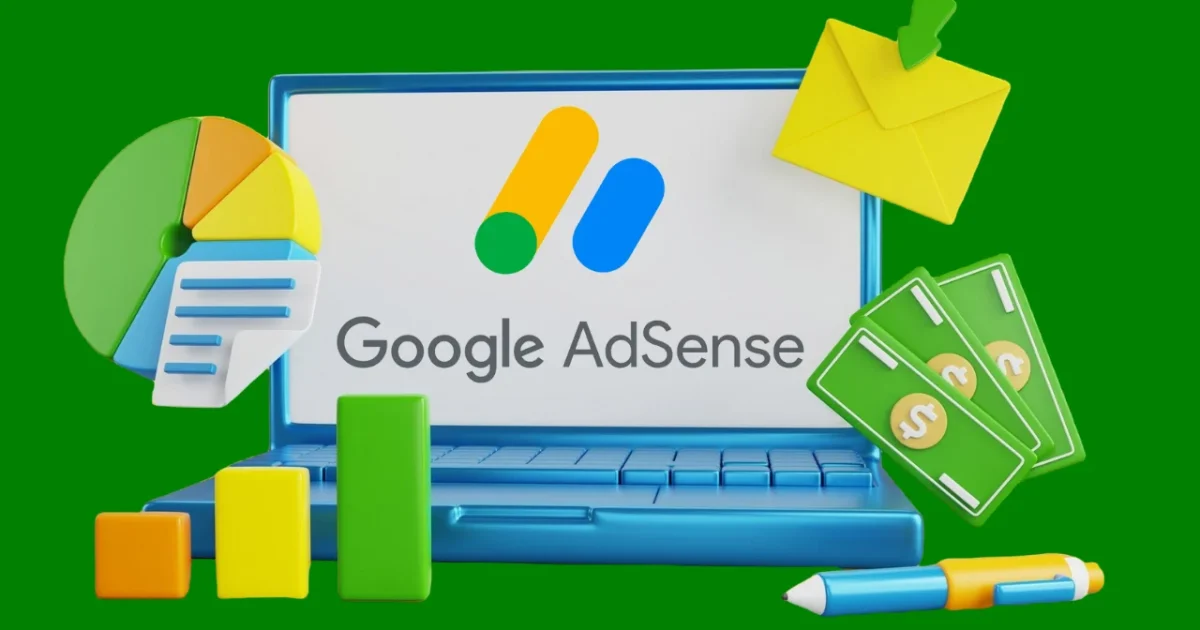Getting Google AdSense approval is a crucial step for monetizing your website and earning revenue through ads. However, it’s not always as easy as simply applying and waiting for approval. Google has stringent requirements that must be met before your site is accepted into the AdSense program. In 2025, understanding these requirements and following best practices is more important than ever. In this guide, we’ll walk you through actionable steps on how to get your website approved for Google AdSense quickly.
Step 1. Write Original and High-Quality Content
One of the most important factors for getting approved by Google AdSense is ensuring that your website features high-quality and original content. Here’s what you need to focus on:
Focus on Original Content
Your content should be 100% original, meaning you write it yourself. Google favors content that offers unique value to users, and copying or plagiarizing can lead to your application being rejected. Always take the time to craft unique articles, blog posts, or product reviews that are informative, helpful, and relevant to your audience.
Originality is key in building a website that both Google and your visitors trust.” – Content Creator
Quality Content Matters
High-quality content doesn’t mean writing a lot of words that don’t add value. Instead, focus on in-depth, detailed posts that provide clear answers to questions or solutions to problems. For instance, articles should range from 800 to 5,000 words, depending on the topic.
Tip: Break down complex topics into simple, digestible points and elaborate on them thoroughly. This approach will help your articles appear more authoritative and useful.
By creating quality content that adds value, you’ll not only improve your chances of AdSense approval but also boost your site’s user engagement and SEO performance.
Step 2. Publish at Least 20 to 30 Unique Articles
Before applying for Google AdSense, it’s essential to have a substantial amount of content on your site. Aim to publish at least 20-30 unique articles. Here’s why:
- AdSense Requirements: Google typically prefers websites with a consistent flow of content. The more articles you have, the better your chances are.
- Traffic: With enough content, your website will be more likely to attract visitors. As a general rule, Google prefers sites with at least 100 visitors per day before approving AdSense.
Tip for Boosting Traffic: SEO Optimization: Focus on optimizing each article for relevant keywords. This will improve your search engine rankings and drive organic traffic to your site.
Step 3. Avoid Using Copyrighted Content
Using copyrighted content can get your website rejected by Google AdSense. This includes images, videos, and even text. Here’s how to avoid it:
- Use Free Images and Videos: To prevent issues with copyright, use royalty-free or Creative Commons images. Websites like Pexels and Unsplash offer a vast library of free images you can legally use.
- Embed YouTube Videos Properly: If you want to use videos on your site, it’s best to embed them directly from YouTube rather than downloading and uploading them yourself. This way, the credit remains with the video owner.
“Credit the original creator, and use royalty-free resources to avoid copyright issues.” – SEO Expert
Step 4. Google Adsense Approval: Include Vital Pages
Google expects certain essential pages to be present on your website. These pages not only ensure legal compliance but also build trust with your visitors.
Must-Have Pages:
- About Us Page: This page should contain information about your website, its purpose, and the people behind it.
- Contact Us Page: Make it easy for users to reach out. Include an email address or a contact form.
- Privacy Policy and Terms & Conditions: These pages are mandatory for compliance and to reassure users that their data is secure. You can generate these pages using websites like Termly to create terms and conditions or privacy policies.
Tip: Having clear, concise legal pages increases trust and boosts your chances of getting approved by AdSense.
Step 5. Improve User Experience
User experience is crucial for both your visitors and for Google. A site that’s easy to navigate, fast to load, and provides clear content will get higher approval chances from AdSense.
Key Areas to Focus On:
- Navigation: Ensure your website is easy to navigate. Use a simple, intuitive menu structure that allows visitors to find what they need quickly.
- Page Speed: Slow websites deter users and can harm your rankings. Aim for a loading time under 3 seconds. Tools like Google PageSpeed Insights can help you analyze and improve your website’s performance.
- Content Layout: Organize your articles in an easy-to-read layout. Break long blocks of text into smaller paragraphs with clear headings.
Tip: A fast, mobile-friendly website with a clean layout helps users stay on your site longer, reducing bounce rates.
Step 6. Ensure Your Website Is Free from Adult Content
Google AdSense has strict policies against adult content, explicit material, or any content that promotes violence or illegal activities. Make sure your website adheres to Google’s content guidelines by:
- Avoiding Explicit Content: This includes sexually explicit content, gambling, or anything related to child abuse.
- Complying with Content Guidelines: Review Google’s AdSense policies regularly to ensure that your site complies with their standards.
AdSense Policy Reminder:
“Websites featuring adult content or illegal activities are automatically disqualified from AdSense approval.” – Google AdSense
Step 7. Monitor Your Traffic and Analytics
Tracking your website’s performance is critical for both improving your content and meeting AdSense requirements.
Tools to Use:
- Google Analytics: Track the number of visitors, their behavior on your site, and other key metrics that help you optimize your content.
- Google Search Console: Use it to monitor your site’s search performance, find and fix crawl errors, and ensure your site’s visibility in Google’s search results.
Tip: Focus on increasing organic traffic by regularly publishing high-quality content and promoting it through social media and SEO techniques.

Final Thoughts
Getting approved for Google AdSense in 2025 requires patience, dedication, and attention to detail. By following these best practices, you can quickly enhance your chances of approval and start monetizing your website. Focus on producing original, high-quality content, maintaining a user-friendly site, and complying with AdSense policies to ensure a smooth approval process.
Frequently Asked Questions (FAQs)
1. How long does it take to get Google AdSense approval?
It can take anywhere from a few days to a couple of weeks for Google to review and approve your application, depending on the quality of your site and whether it meets their guidelines.
2. Can I apply for AdSense if I have low traffic?
While Google AdSense doesn’t specify an exact number of visitors for approval, having at least 100 visitors per day is a good benchmark. More content and traffic generally increase your chances of getting approved.
3. Do I need to have a niche website to get AdSense approval?
No, your website does not need to be niche-specific. However, your content should still provide value and be relevant to your audience. Websites with diverse topics can be approved as long as they follow AdSense policies.
4. What happens if my AdSense application is rejected?
If your application is rejected, Google will provide a reason. Review their feedback, fix the issues, and then reapply. Make sure your website complies with all AdSense policies and contains high-quality content.
5. Can I use AdSense on multiple websites?
Yes, you can use AdSense on multiple websites. Once your first site is approved, you can link additional websites under the same AdSense account. However, each website must comply with AdSense policies.
6. What type of content does Google AdSense approve?
Google AdSense approves content that is original, non-copyrighted, and adheres to their policies. Avoid adult content, hate speech, or anything illegal. Content should provide value, be user-friendly, and be relevant to your audience.
7. Does my website need to have a lot of ads before applying for AdSense?
No, your website should not have excessive ads before applying. In fact, Google prefers clean and well-structured websites. Focus on providing valuable content first, and only add ads once you’ve been approved.
8. Is there a minimum age requirement for AdSense?
Yes, the minimum age to apply for Google AdSense is 18. If you’re under 18, you’ll need a parent or guardian to apply on your behalf.






